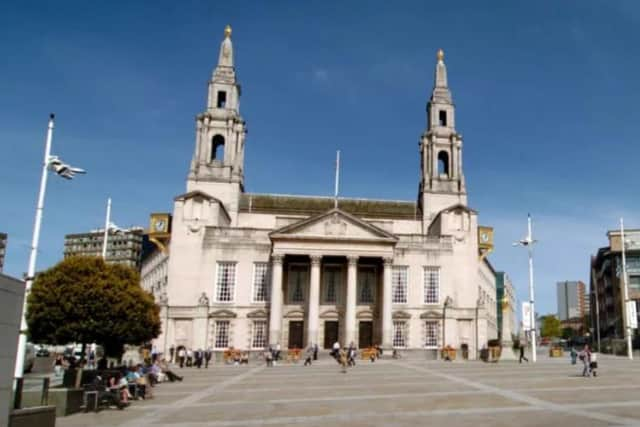Leeds still in the dark over Covid rescue money - despite pleas to government one week ago
and live on Freeview channel 276
The authority is still in the dark over how much more money it can expect from government to plug a remaining £150m-plus gap in its finances caused by extra costs and loss of income caused by the pandemic and subsequent lockdown.
The leader of Leeds City Council claimed the government is expected to put together its own mini-budget early in July, which the authority has been ‘led to believe’ could include extra cash for councils.
Advertisement
Hide AdAdvertisement
Hide AdBut the council still has no idea how much the government is likely to add to the £43.7m it has already given Leeds, with the extra cost of Covid to the city’s coffers for 2020 alone expected to hit £200m.


This is despite the council announcing a week ago that it would need to devise an emergency budget, which could see huge cuts to many non-statutory services the authority provides.
Coun Judith Blake (Lab) said: “It is something the whole of the Local Government Association has been lobbying for, and we understand the government is planning a mini-budget in the first week of July.
“We are very hopeful that from the different returns that have come in from other local authorities from across that country, that they will listen to what we have been saying.
Advertisement
Hide AdAdvertisement
Hide Ad“We, along with other councillors from different parties have been led to believe that there will be some extra money in that, but the question remains the amount.
“We have been at pains to get across just how big the gap is.
“When we have a situation where 80 percent of local authorities across the country – run by different parties – are saying the same, it shows how profound and serious the problem is.
“If the government is saying that the reward for those working on the front-line is that those services can no longer continue and their jobs would be at risk, that would be a terrible situation and we must not allow that to happen.”
Advertisement
Hide AdAdvertisement
Hide AdRules around council spending mean it is illegal for local authorities to run at a loss, and therefore have to balance their budgets within the financial year.
Leeds says it would therefore have to put together an in-year budget, announcing further cuts to services, unless the government plugged the remaining £150m gap, or the rules around in-year finances were relaxed.
Leeds City Council chief executive Tom Riordan said: “I am feeding in on the same issues. What we are asking government for is the same treatment as other parts of the public sector, and the way the government is running its own finances to borrow over a long period at low interest rates.
“The extra costs needed this year and having a longer term approach to our budget instead of the annualised approach that we have at the moment.”
Advertisement
Hide AdAdvertisement
Hide AdAt a press conference last week, council officers warned no extra government financial help could mean a loss of more than 400 full-time equivalent jobs. It added the emergency budget would have to be produced in “late August/September time”.
The council’s chief executive Tom Riordan also hinted last week that culture and events may have to take a hit, as this was one of the few non-compulsory areas of council spending left to be cut.
The council’s deputy leader Coun James Lewis confirmed today there would already be a stop in non-essential recruitment and procurement, as well as service reviews to look at where spending can be cut.
He added: “I personally think the difference between statutory and non-statutory is a bit of a red herring.
Advertisement
Hide AdAdvertisement
Hide Ad“There are things we could do in terms of reducing the scale of services without switching them off completely. For example we don’t have government guidance on our sport centres, so they may operate differently for a while.
“It could be around both how we provide services as well as which services we do or don’t provide. The process is going through service reviews.”